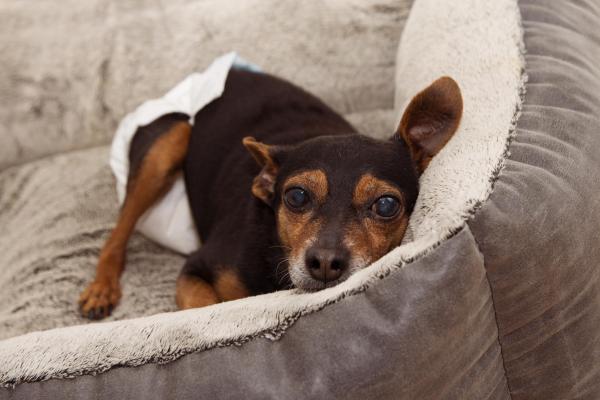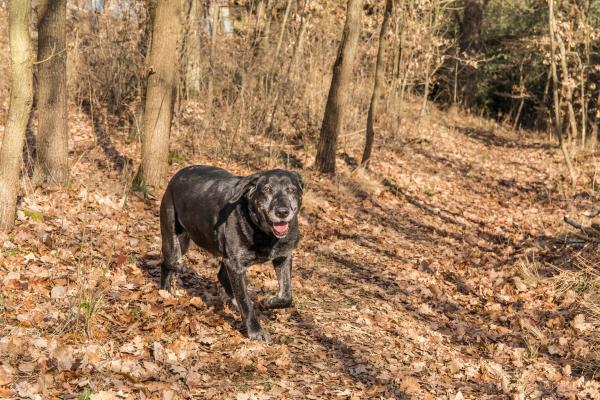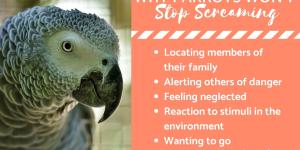My Elderly Dog Won't Sleep at Night



See files for Dogs
Age affects dogs in various ways, both physically and emotionally. For many of us, the tired old dog is a cliché. Once a canine reaches a certain stage, they will spend all their time lazing around the home and often sleeping for longer periods. Once a dog reaches an advanced age, they will start to sleep more. This total sleep will be a combination of short naps and longer periods of sleep, the latter usually at night. For this reason, it can be quite unexpected if your senior dog is not sleeping. Moreover, it can be a cause for a health concern, especially if they are made vulnerable by age.
At AnimalWised, we find out why my elderly dog won't sleep at night. Not only do we find out the causes of insomnia in older dogs, we look at what we can do to help them rest better.
How much should an elderly dog sleep?
The amount of hours a dog sleeps in a day will differ for various reasons. Age is one of the most important factors. When a dog is a puppy, they will need to sleep more due to their heightened development. This is usually up to 20 hours per day, often more for newborns. Once they are an adult, the dog may sleep around 12 hours out of the day.
A dog is considered elderly when they reach around 7 to 9 years of age, but this will differ according to breed and other factors. Once they begin to reach old age, they will start to sleep more often. This is because their body is deteriorating over time and they do not have the energy levels of a younger canine. For this reason, senior dogs tend to sleep around 14 hours per day.
Dogs won't sleep all at once, preferring to nap throughout the day. However, they do tend to have a longer sleep at some point, usually during the night. This is partly because they become synchronized with their human guardian's routine. The dog's genetic inheritance will also partly determine their sleep schedule with some dogs being naturally more active than others.
Since elderly dogs usually sleep more, it can be worrying if they being to sleep less than they did as an adult dog. If they show other behavioral or physical symptoms such as restlessness or changes in personality, it is of particular concern. We most often notice this at night because their longer sleep pattern is disturbed. Below we show the main reasons why an elderly dog isn't sleeping.
1. Pain
If your senior dog does not sleep at night, we should first consider whether they have a physical health problem. Older dogs are more susceptible to health problems due to the effects of age on their body and mind. One of the most common issues is related to their musculoskeletal system. Wear and tear on joints and bones can lead to problems such as arthritis or hip dysplasia in dogs. These can be very painful conditions.
Dogs which are larger in size or obese are particularly prone to joint pain and other problems. Other health conditions such as trauma or chronic disease can also result in your elderly dog being in pain. Due to a weaker immune system, they are often more susceptible to disease. Sometimes the pain can lead to them sleeping more since movement can be painful. When the pain is very acute, they may not be able to rest comfortably and will sleep less.
If your dog won't sleep at night because they are in pain, the first thing to do is take them to a veterinarian. They are best able to diagnose the problem and provide the correct treatment. This will likely be in the form of symptom management. This could involve the use of pharmacological analgesics, but we should also find ways to improve their comfort to make sleeping more conducive.
Learn more about health issues in senior dogs with our article on diarrhea in elderly dogs.
2. Vision or hearing loss
When dogs reach a very old age, both their visual and hearing abilities tend to decrease over time. Elderly dogs are also more prone to certain eye pathologies such as cataracts or keratoconjunctivitis. These conditions can seriously affect the animal's vision.
If your dog starts to develop problems with their senses and perception, it can be very worrying for the animal. When their normal interactions with their environment change and they cannot navigate it easily, it can lead to serious fear and anxiety. They can become disorientated and insecure, something which precludes them from resting properly. They may wake up at night and bcome distraght as we are not around to reassure them.
In these cases, you will also need to take them to a veterinarian. There are some eye problems in dogs which can be treated and help improve vision, but, even if this is not the case, the vet can provide information on how to best help the dog. We will need to provide reassurance and practical help during this time. For example, if they cannot hear as well, we will need to ensure we use positive body language for canine communication.

3. Urinary incontinence
Urinary problems also appear more frequently in the case of older dogs. When dogs cannot control their bladder, it can be due to both physical and psychological issues. However, if the senior dog is otherwise happy with their needs well met, urinary incontinence is usually due to a physical health problem.
Urinary incontinence in dogs can have many cause. These can be pathological, neurological, physiological or psychological. Elderly dogs often have problems related to the kidneys, liver and other organs involve in waste elimination. They can also develop urinary tract infections, bladder stones and other issues which can affect their urination. These issues can affect their sleep schedules and result in them sleeping less.
As with any health issue concerning your dog, you will have to go to the veterinarian. They will determine the cause of the problem and find the right course of treatment. If the urinary incontinence cannot be cured, we will have to find ways to help manage the symptom. This may involve changing their walking routines and adapting their schedule, but some cases may require the use of dog diapers.
4. Changes in routine
Dogs are creatures of habit. A positive routine structured around their needs will help a dog to feel comfortable and secure at home. Many dog behaviors exist to help exert a feeling of control over their environment. These include behaviors such as barking at strangers and marking their territory. Once they feel more in control, they are usually able to reduce anxiety and relax more easily.
When disruptions and changes to their routine occur, it can affect the dog's sleep schedule. It is often the case that the dog won't sleep at night because their normal patterns are disturbed. Routine changes may include new working hours for guardians, moving to a new home or new additions to the family. When these changes occur, a dog of any age can be disrupted. However, elderly dogs are often more set in their ways and disruptions have a greater impact.
If your elderly dog suddenly isn't sleeping, but they do not have a specific physical health issue, we should look at the context of the problem. If we have made changes to their routine, we need to support them and help ease any stress these changes make. This requires using positive reinforcement and behavior modification exercises. In some cases, this may require the help of a dog trainer or canine ethologist.

5. Neurological problems
If your dog's insomnia does not have a pathological or psychological cause, it is possible they are suffering from a neurological problem. One of the most common in elderly dogs is cognitive dysfunction syndrome, a condition which is similar to dementia in humans. Just as a dog's musculoskeletal system is affected by age, their brain can also deteriorate.
When a dog suffers from cognitive dysfunction, they can develop various symptoms including insomnia, confusion, disorientation, vocalizations for no apparent reason, irritability, anorexia, incontinence, anxiety and others. As a degenerative and chronic disease, there is no cure. However, there are things we can do to improve the dog's quality of life. They include:
- Keeping your dog physically, socially and mentally stimulated (walks through green areas, training, interactive toys, puzzles, scent games, etc.)
- Maintaining stable routines
- Providing a quality diet catered to their specific needs (ask advice of veterinary nutritionist)
- Adapting the home to their needs (reduced mobility, loss of sensitivity, etc.) and create comfortable and quiet spaces for them to rest
- Using medication or supplements the veterinarian prescribes
As always, we recommend a visit to a veterinarian and an ethological consultation to establish an effective treatment plan for your dog. Unfortunately, when cognitive dysfunction becomes sufficiently advanced, euthanasia in dogs may be recommended due to their poor quality of life.

If you want to read similar articles to My Elderly Dog Won't Sleep at Night, we recommend you visit our Behavioral problems category.







